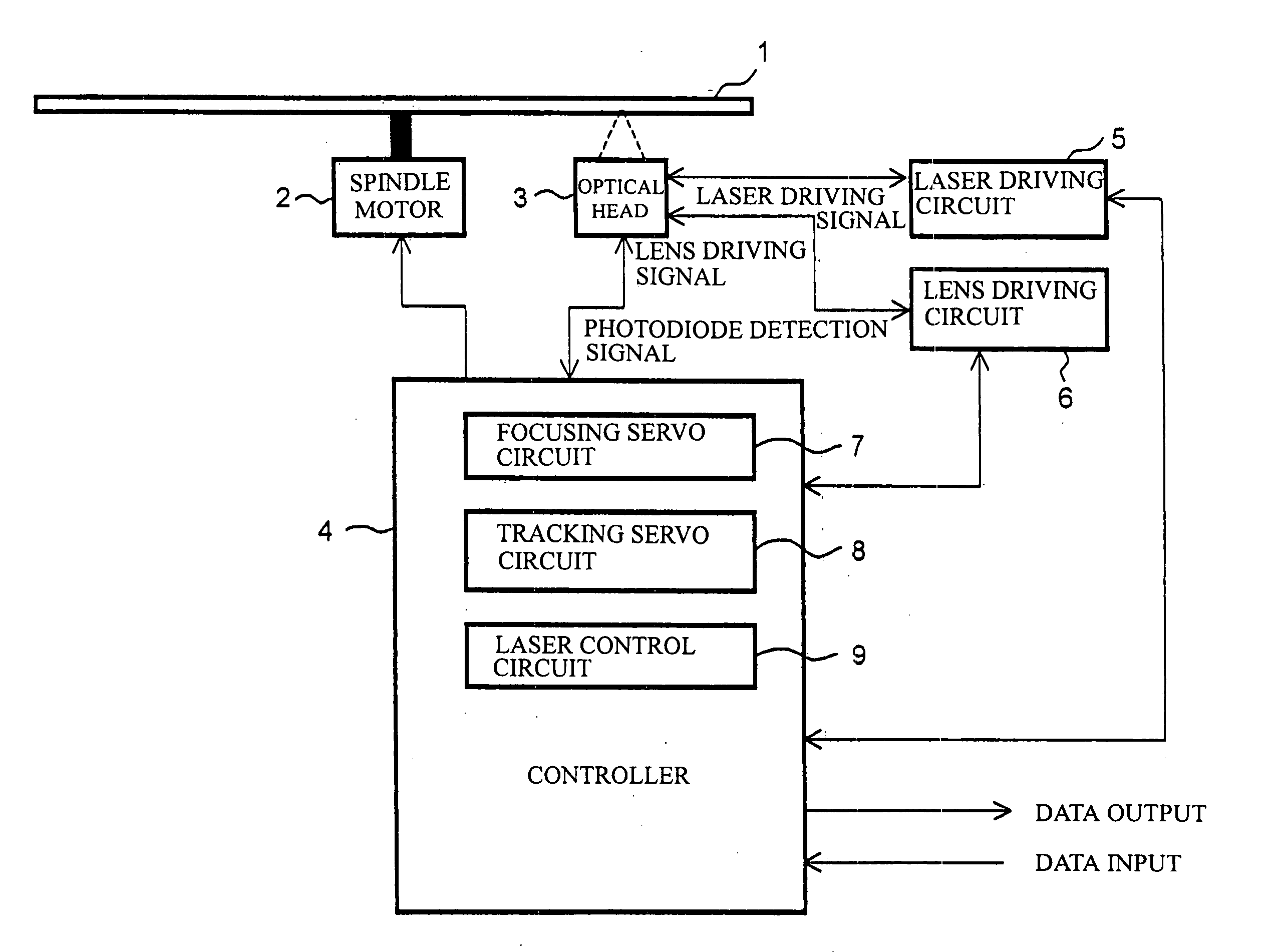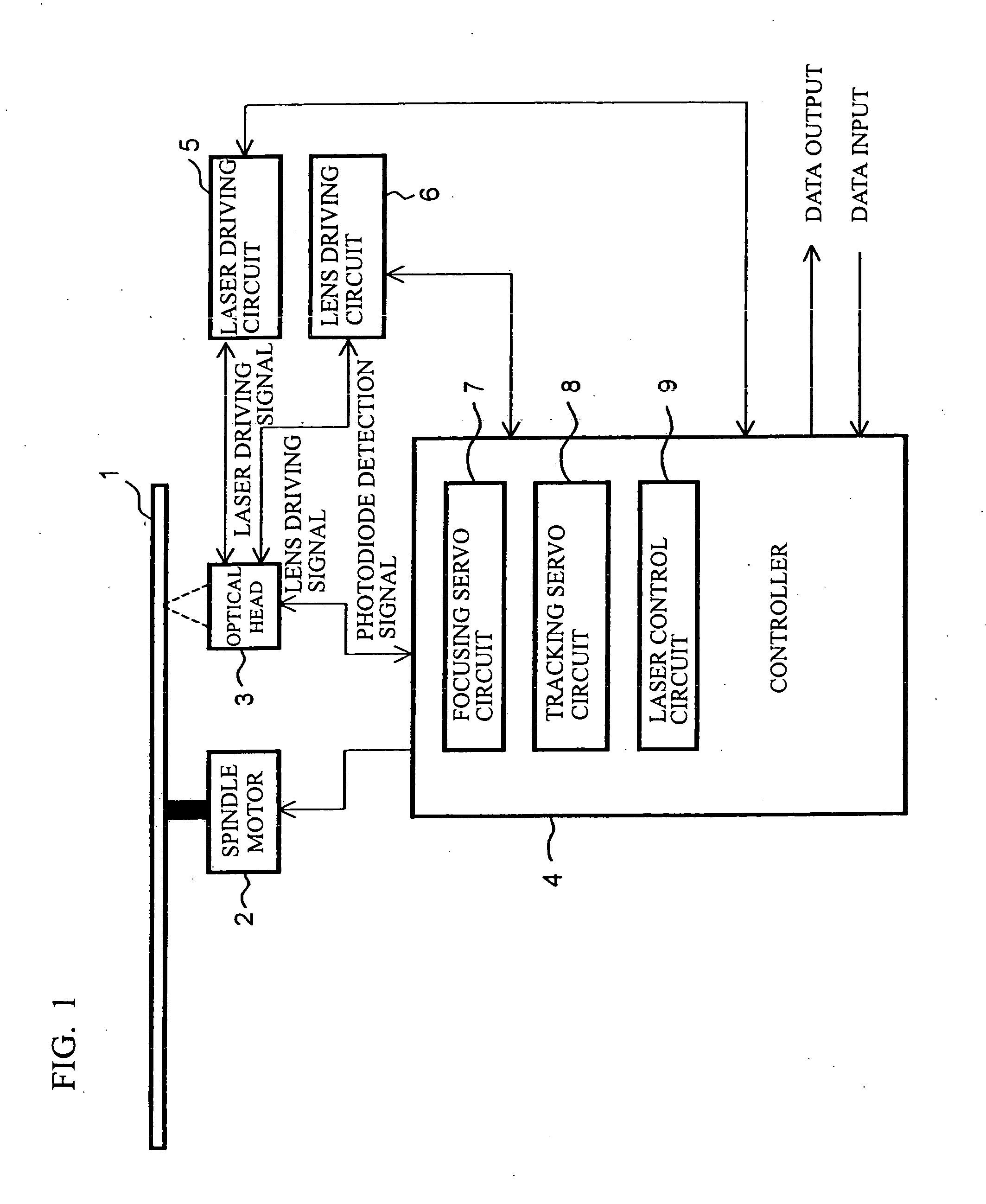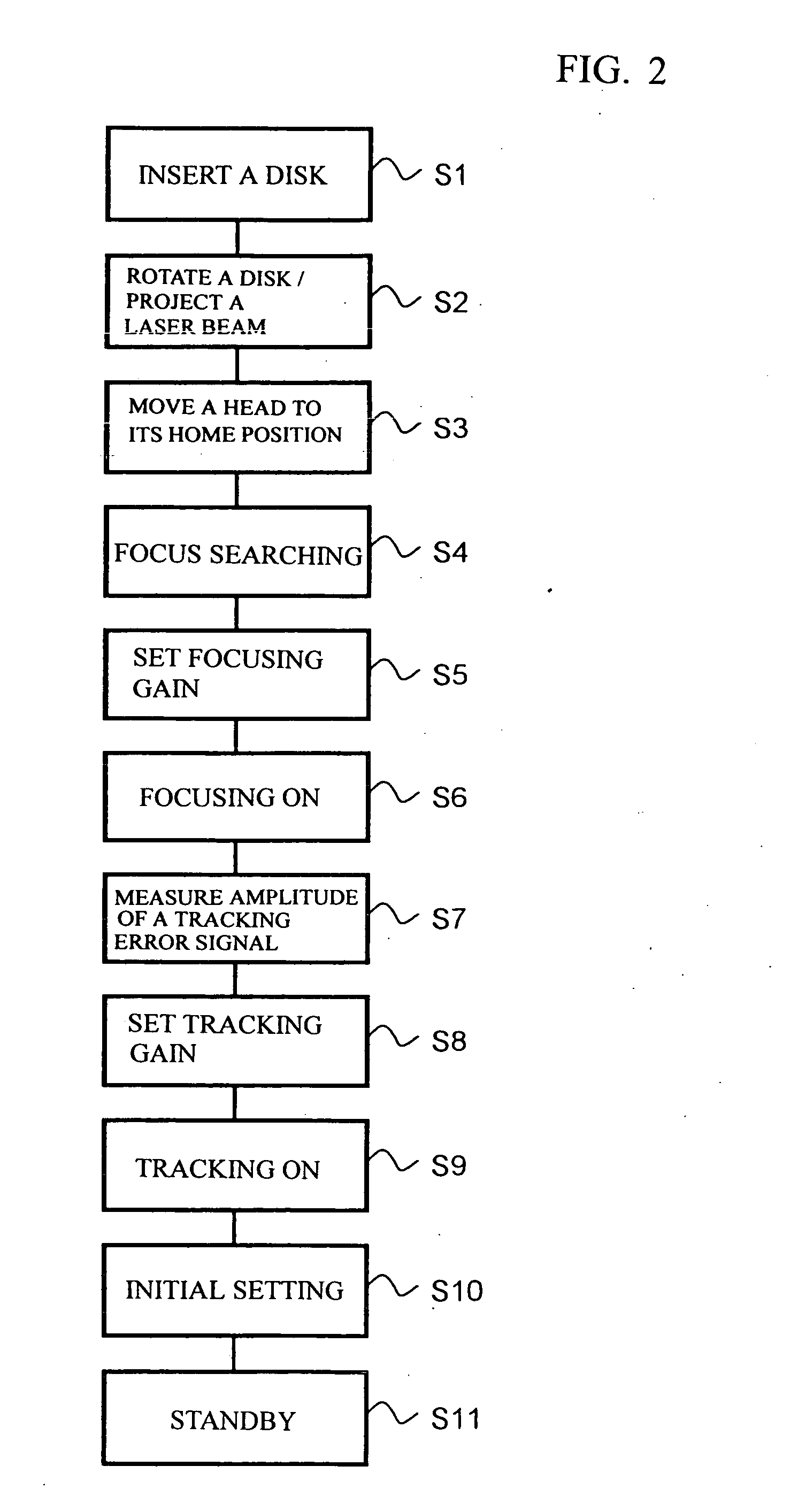Method of recording information to an optical recording medium, optical recording medium and information recorder/reproducer
a technology of optical recording medium and information recorder/reproducer, which is applied in the field of recording information to an optical recording medium, an optical recording medium and an information recording and reproducing apparatus, can solve the problems of increasing the jitter of a reproduced signal, the inability to reproduce data, and the length and shape of recording marks that are undetectable, so as to reduce the influence of heat caused by neighboring recording marks and reduce the jitter , the effect of reducing the cross-
- Summary
- Abstract
- Description
- Claims
- Application Information
AI Technical Summary
Benefits of technology
Problems solved by technology
Method used
Image
Examples
working example
[0100] First, an optical recording medium like that shown in FIG. 3 that had a substrate 11 with a thickness of approximately 1.1 mm, a reflective layer 12 with a thickness of 100 nm, a second dielectric layer 13 with a thickness of 20 nm, a recording layer 14 with a thickness of 12 nm, a first dielectric layer 15 with a thickness of 35 nm, and a light transmission layer 16 with a thickness of approximately 100 μm was prepared.
[0101] Recording marks of random length corresponding to one of 2 T to 8 T were recorded on a predetermined track of the optical recording medium one hundred times using the recording strategy shown in one of FIGS. 4 to 7 Is under the conditions shown in Table 1, where the clock frequency f was 132 MHz, the clock period (1 T) was 7.6 nsec, the linear recording velocity was 10.5 m / sec, the modulation code was (1,7) RLL, the data transfer rate was 70 Mbps, the channel bit length was 0.12 μn / bit, the numerical aperture of an objective lens was 0.85 and the wavel...
PUM
| Property | Measurement | Unit |
|---|---|---|
| power | aaaaa | aaaaa |
| power | aaaaa | aaaaa |
| wavelength | aaaaa | aaaaa |
Abstract
Description
Claims
Application Information
 Login to View More
Login to View More - R&D
- Intellectual Property
- Life Sciences
- Materials
- Tech Scout
- Unparalleled Data Quality
- Higher Quality Content
- 60% Fewer Hallucinations
Browse by: Latest US Patents, China's latest patents, Technical Efficacy Thesaurus, Application Domain, Technology Topic, Popular Technical Reports.
© 2025 PatSnap. All rights reserved.Legal|Privacy policy|Modern Slavery Act Transparency Statement|Sitemap|About US| Contact US: help@patsnap.com



